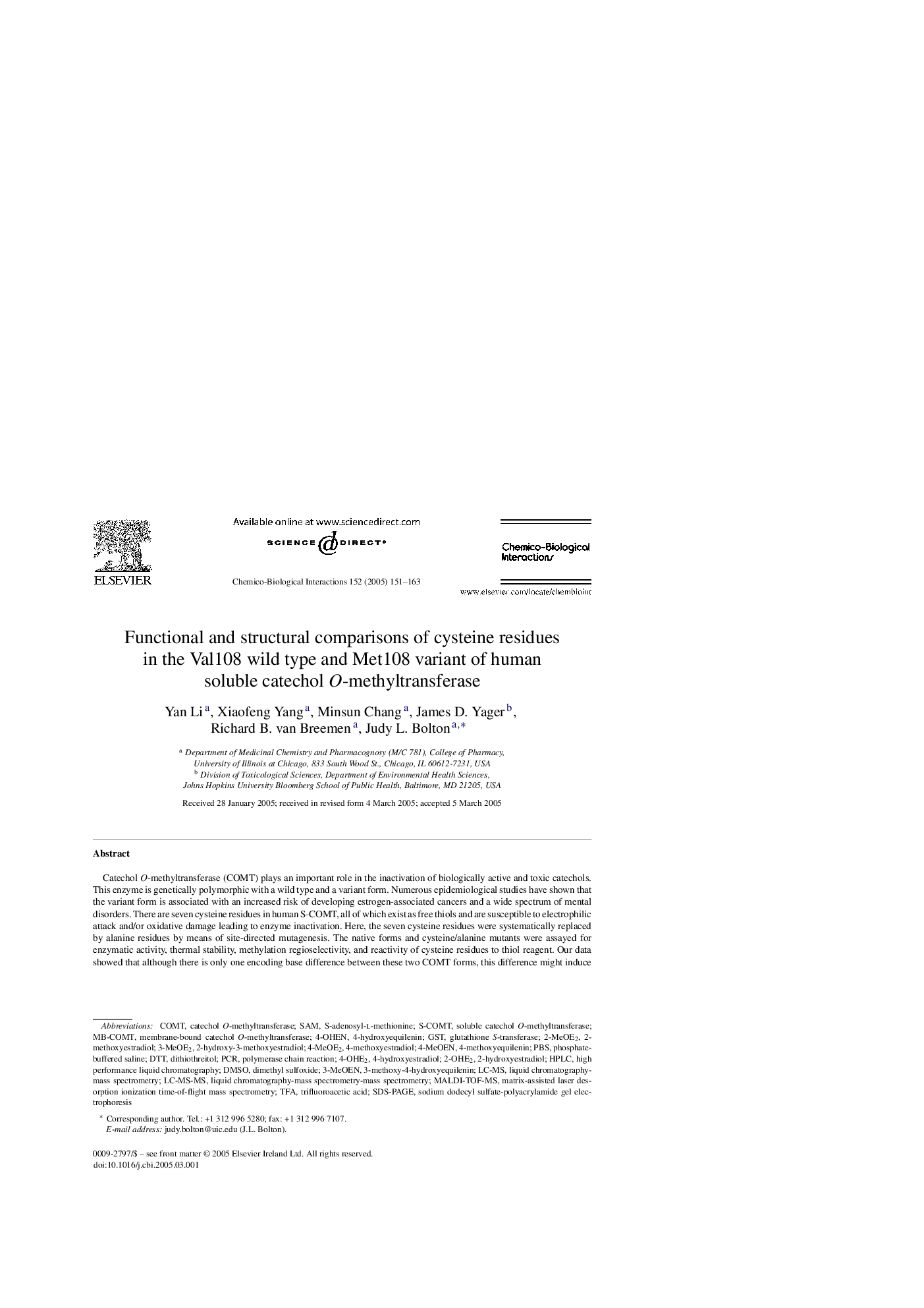| Article ID | Journal | Published Year | Pages | File Type |
|---|---|---|---|---|
| 9028713 | Chemico-Biological Interactions | 2005 | 13 Pages |
Abstract
Catechol O-methyltransferase (COMT) plays an important role in the inactivation of biologically active and toxic catechols. This enzyme is genetically polymorphic with a wild type and a variant form. Numerous epidemiological studies have shown that the variant form is associated with an increased risk of developing estrogen-associated cancers and a wide spectrum of mental disorders. There are seven cysteine residues in human S-COMT, all of which exist as free thiols and are susceptible to electrophilic attack and/or oxidative damage leading to enzyme inactivation. Here, the seven cysteine residues were systematically replaced by alanine residues by means of site-directed mutagenesis. The native forms and cysteine/alanine mutants were assayed for enzymatic activity, thermal stability, methylation regioselectivity, and reactivity of cysteine residues to thiol reagent. Our data showed that although there is only one encoding base difference between these two COMT forms, this difference might induce structural changes in the local area surrounding some cysteine residues, which might further contribute to the different roles they might play in enzymatic activity, and to the different susceptibility to enzyme inactivation.
Keywords
PBS2-OHE24-OHE24-MethoxyestradiolMB-COMTS-COMT2-MethoxyestradiolCOMTLC-MS-MSLC-MSTFASAMGSTDTT2-hydroxyestradiol4-HydroxyestradiolDMSOS-adenosyl-L-methionineTrifluoroacetic acidsodium dodecyl sulfate-polyacrylamide gel electrophoresisSDS-PAGEestrogen replacement therapydithiothreitolDimethyl sulfoxideLiquid chromatography-mass spectrometryMatrix-assisted laser desorption ionization time-of-flight mass spectrometryMALDI-TOF-MSPhosphate-buffered salinepolymerase chain reactionPCRGene polymorphismcatechol O-methyltransferasehigh performance liquid chromatographyHPLCglutathione S-transferase
Related Topics
Life Sciences
Environmental Science
Health, Toxicology and Mutagenesis
Authors
Yan Li, Xiaofeng Yang, Minsun Chang, James D. Yager, Richard B. van Breemen, Judy L. Bolton,
